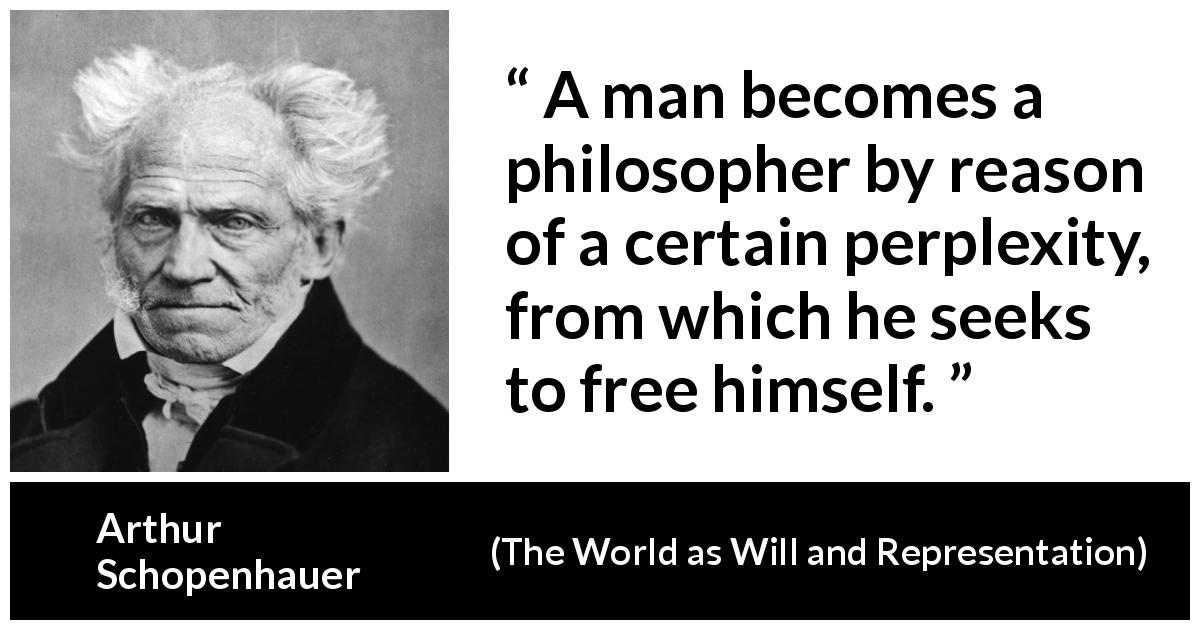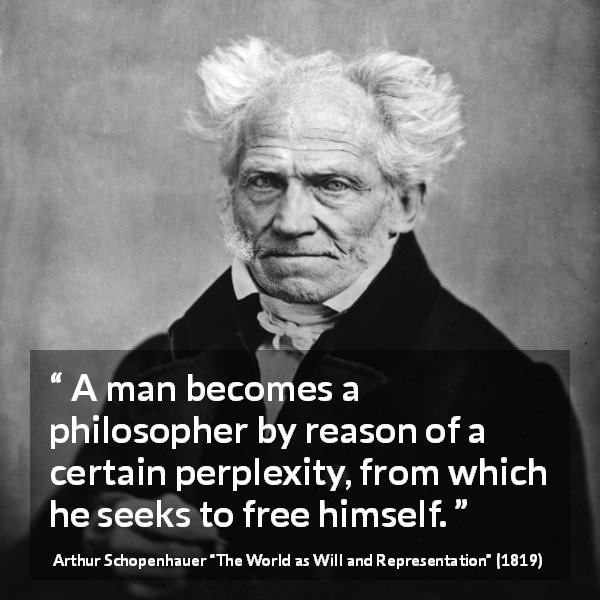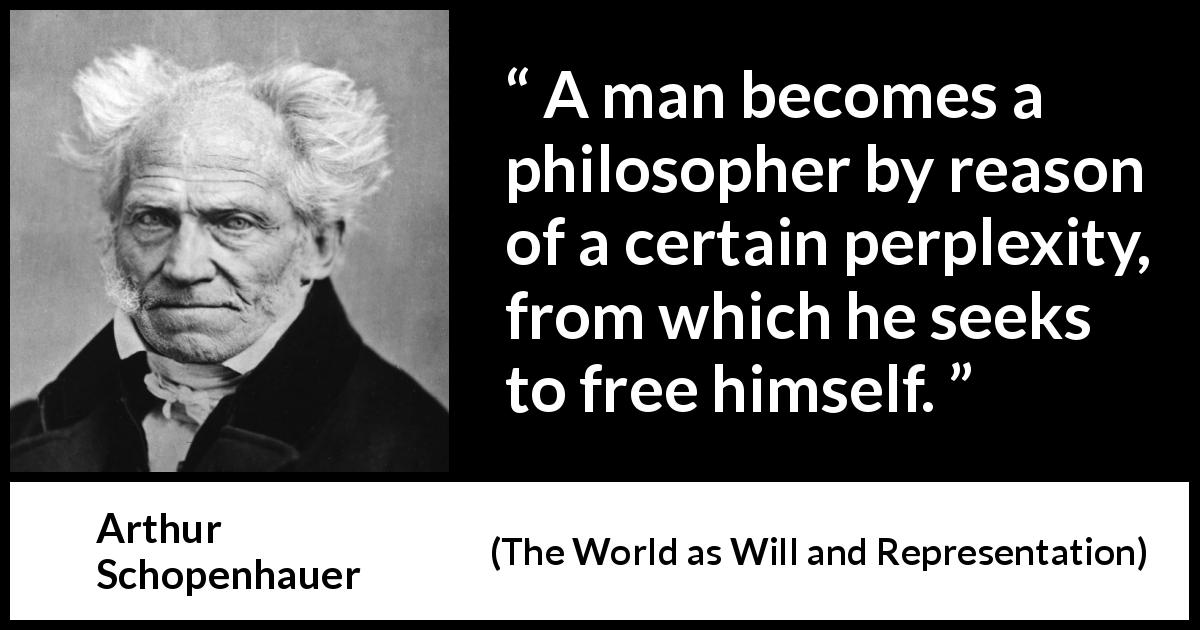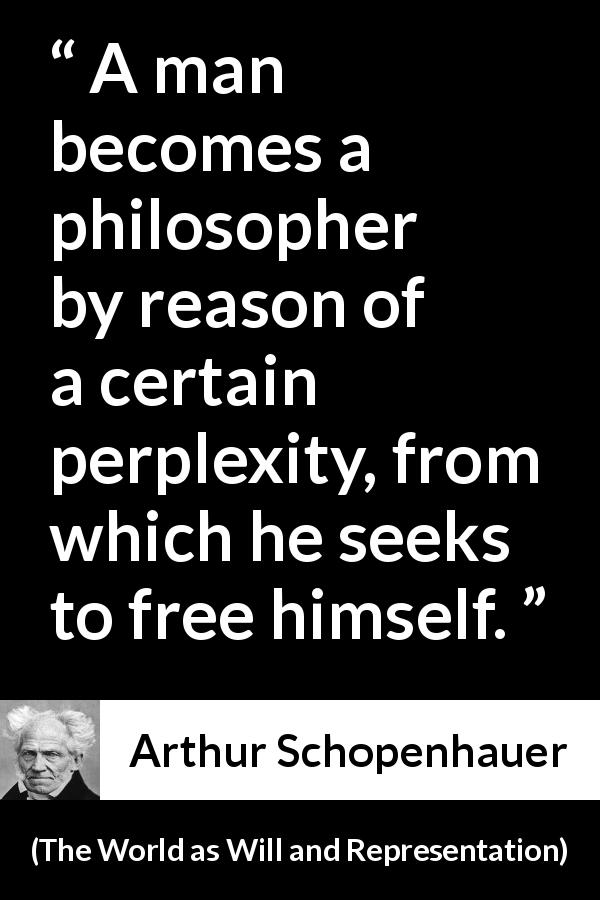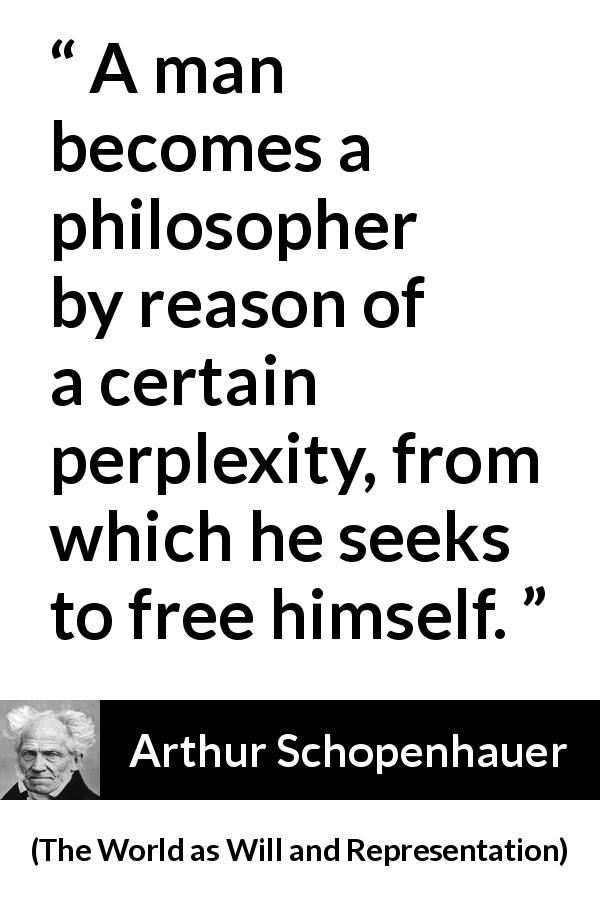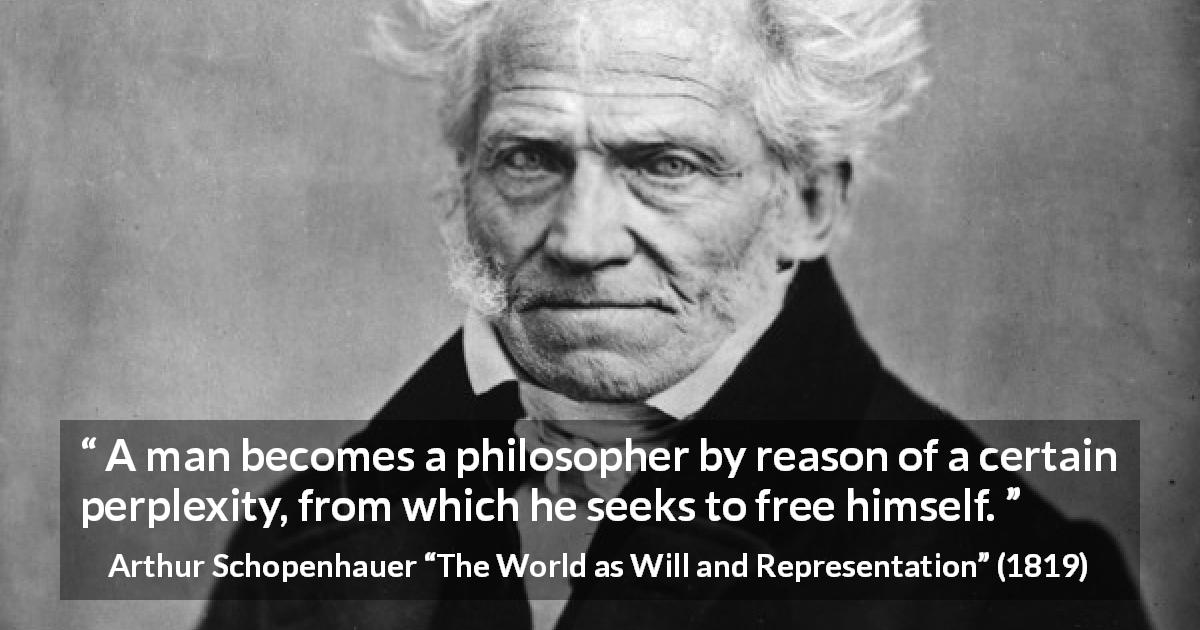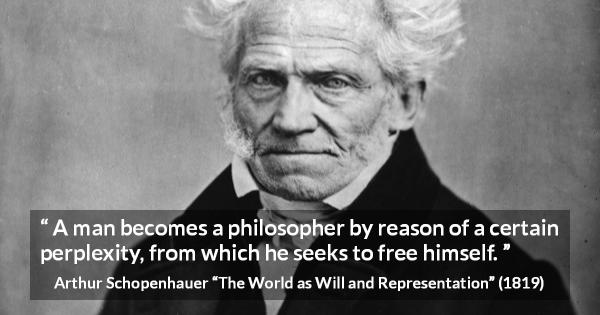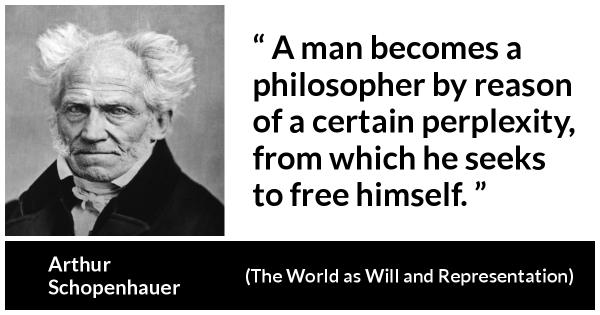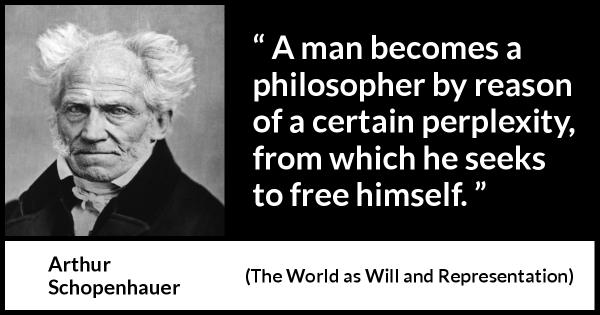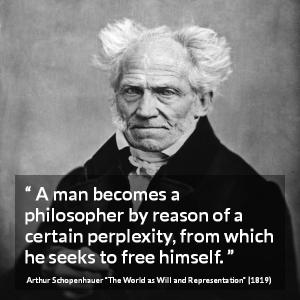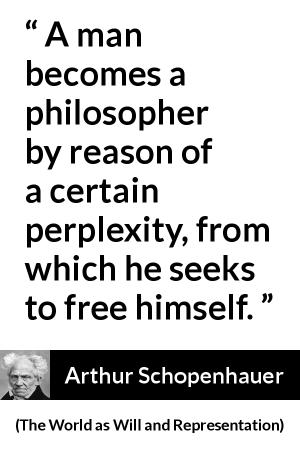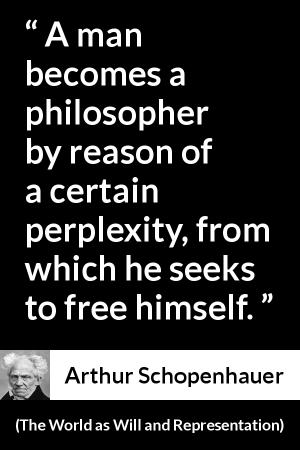“ A man becomes a philosopher by reason of a certain perplexity, from which he seeks to free himself. ”
Arthur Schopenhauer, The World as Will and Representation (1819). copy citation
| Author | Arthur Schopenhauer |
|---|---|
| Source | The World as Will and Representation |
| Topic | philosophy freedom perplexity |
| Date | 1819 |
| Language | English |
| Reference | |
| Note | Translated by R. B. Haldane and J. Kemp |
| Weblink | http://www.gutenberg.org/files/38427/38427-h/38427-h.html |
Context
“But the genuine earnestness which keeps truth always steadfastly before it as its goal, and is unaffected by any external influences, was entirely wanting to Fichte, as it is to all philosophers who, like him, concern themselves with questions of the day. In his case, indeed, it could not have been otherwise. A man becomes a philosopher by reason of a certain perplexity, from which he seeks to free himself. This is Plato's θαυμαξειν, which he calls a μαλα φιλοσοφικον παθος. But what distinguishes the false philosopher from the true is this: the perplexity of the latter arises from the contemplation of the world itself, while that of the former results from some book, some system of philosophy which is before him.”
source
